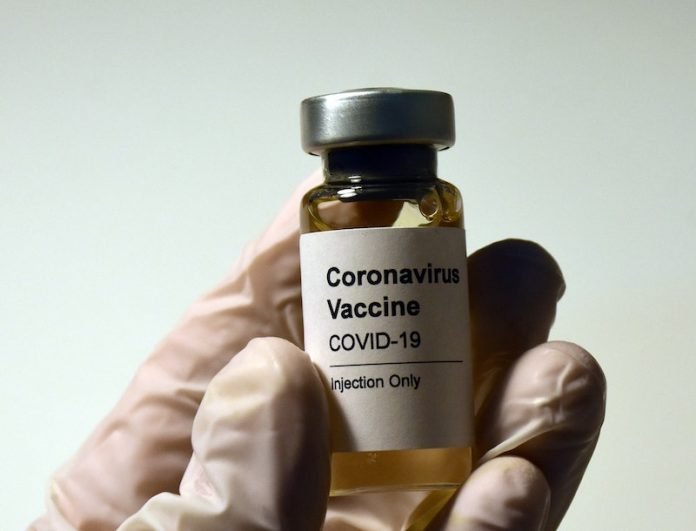
The consensus from University of Michigan experts is you should get whichever COVID-19 vaccine is offered to you.
Each of the three currently authorized COVID-19 vaccines—the Pfizer and Moderna mRNA vaccines and the newest vaccine from Janssen/Johnson & Johnson—prevents severe disease and death.
How does the Janssen/Johnson & Johnson vaccine work?
The Janssen vaccine is based on older vaccine technology and uses a harmless cold virus to deliver instructions to our cells for making the spike protein used by the COVID-19 virus to get inside our cells.
The immune system then responds to the spike protein, recognizing it as foreign and triggering the development of antibodies.
Similar technology was used to make the highly successful vaccine against Ebola.
The Moderna and Pfizer vaccines are different because they deliver mRNA instructions for the spike protein inside of a lipid ball that enters your cells, triggering the immune system.
Unlike the mRNA vaccines, which require two shots, the Janssen vaccine only requires one.
Comparing COVID-19 vaccines
Some people may wonder how the three currently available vaccines—Moderna, Pfizer and Janssen—stack up against each other.
Are the Pfizer and Moderna mRNA vaccines better than the new Janssen/Johnson & Johnson vaccine?
Adam Lauring, M.D., assistant professor in the several divisions within the Department of Internal Medicine, says they cannot be compared in a head-to-head match-up using current data.
“This is not the way science is done,” he says.
First, he explains, the trials were done at different times in the pandemic, in different countries with different sets of people.
The Janssen trials were held when different versions of the virus were circulating worldwide and had different levels of efficacy depending on where you look.
For example, Janssen announced at the end of January that, in the United States, their vaccine was 85% effective against severe COVID-19 when measured 28 days after receiving the vaccine.
Pfizer and Moderna vaccines were found to be more than 94% effective against severe disease in late 2020. But the mRNA trials were held before newer, more contagious versions of the SARS-CoV2 virus, called variants, began to spread.
For instance, recently Pfizer and Moderna looked at the ability of blood drawn from people who were vaccinated with an mRNA vaccine to neutralize a new variant of SARS-CoV2 called B.1.351, which is heavily circulating in South Africa.
The study saw a 6-10 fold drop in the level of antibodies. They are actively working on boosters as a result.
For another more familiar example, flu vaccines hover between 40 to 60% effective each year and still prevent illness for millions of people and hospitalization or death for thousands more.
Furthermore, the one shot Janssen/Johnson & Johnson vaccine may be beneficial for certain populations, such as people who move around a lot and can’t return for a second dose, people who are on immunosuppressant drugs and can’t easily delay taking them in order to receive a second dose of vaccine, and people who are allergic to the mRNA vaccine.
The vaccine is also more easily stored and stable for longer periods of time with freezing.
New studies would need to be done to truly match up the COVID-19 vaccines. Lauring notes that this type of comparative effectiveness has been done for years with flu vaccines.
Efficacy vs. effectiveness
Researchers are still studying how the COVID-19 vaccines work in the real world.
An early study in Israel, which looked at over 1 million people who were vaccinated with the Pfizer vaccine, suggests that the vaccine is effective at reducing the transmission of SARS-CoV2 as cases there have dropped dramatically, preventing the risk of severe disease up to 92%.
Additional effectiveness studies are underway in the U.S. for the Pfizer and Moderna vaccines and will be for the Janssen/Johnson & Johnson vaccine as well.
In this together
It’s important to remember that the benefits of vaccination are not just about reducing any given person’s risk, but also about reducing transmission at the population level, says Lauring.
“The idea that you would split hairs is missing the bigger picture: we have to get as many vaccines into as many people as fast as we can because that’s the only way out of this.”
Do COVID-19 vaccines protect against transmission? Again, the answer is not a black-and-white yes or no. “It is somewhere in the gray,” says Lauring. “It is likely all of the vaccines reduce transmission by some amount.”
No vaccine eliminates all transmission so public health measures like wearing masks and socially distancing will still be needed. “Across society, we will require precautions until we get enough people immune.”
Even without complete elimination, the COVID-19 vaccines will undoubtedly reduce illness across the board.
Says Lauring, “I suspect that all the vaccines will work to reduce each aspect of COVID – death, severe disease, mild to moderate disease, the chances of becoming a long hauler. The efficacy against each will differ.”
After getting the vaccine, whether you can return to normal life will depend on the vaccination status of people around you.
“As we get cases below a certain amount, we will be able to relax the other social behaviors, open up and start doing things the way we used to do.”
The bottom line is that vaccines save lives. Lauring suggests people ask themselves what is important to them.
“I imagine many would say ‘protecting me and my loved ones from getting really sick’ or ‘reopening society so we can get back to normal,’” he says.
“All three vaccines work here. They prevent you from getting really sick and they are an important step toward exiting this pandemic phase.
And the most important thing right now is getting as many people vaccinated as quickly as we can.
Written by Kelly Malcom.



